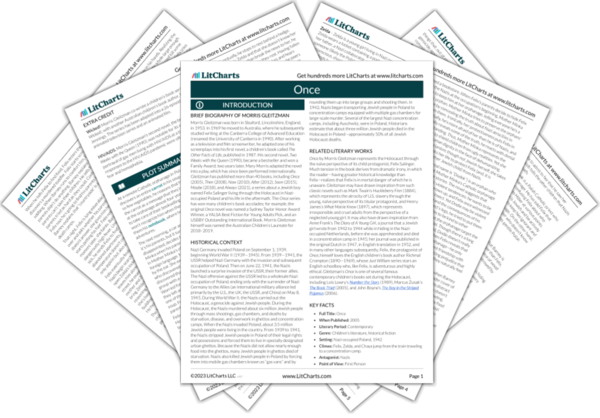As readers probably doubt Felix’s assumption that the carrot is a message from his parents, they must likewise assume that Mother Minka is not “mak[ing] a joke to draw attention away from” it. When Mother Minka tells Felix to “eat [a bug] and be grateful,” she’s dead serious. Felix’s misinterpretations of the carrot and of Mother Minka show that his hopeful innocence leads him to draw false conclusions. Yet Mother Minka used to be a patron of his parents’ bookstore, which means she must know that his family is Jewish—and she nevertheless adds “Saint Stanislaus” to his name, which could be a reference to one of several Polish Catholic saints. This name—which Felix’s Jewish parents likely did not give him—suggests that Mother Minka is pretending that Felix is Catholic, hiding his Jewishness to protect him during the Nazi occupation. Thus, while Felix interprets Mother Minka’s gruffness too optimistically as humor, he may ultimately be correct in assuming the best of her.


